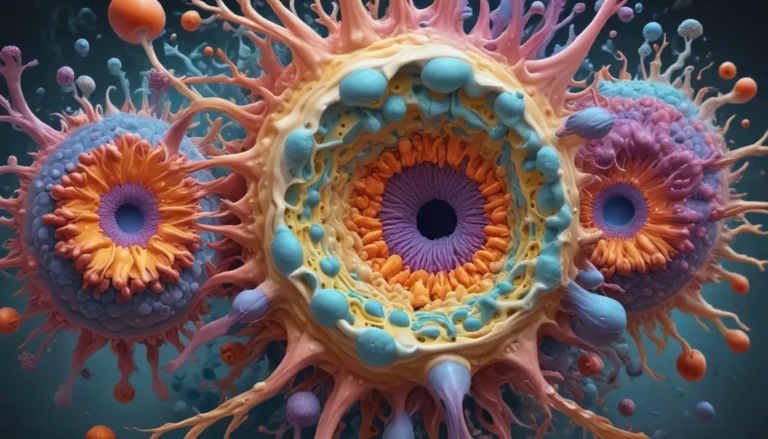A Note About Images: The images used in our articles are for illustration purposes only and may not exactly match the content. They are meant to engage readers, but the text should be relied upon for accurate information.
Non-communicable diseases, or NCDs, are a group of medical conditions that are not caused by infectious agents and cannot be transmitted from person to person. These chronic diseases, such as heart disease, cancer, diabetes, and respiratory diseases, have become a significant global health concern. In this article, we will dive into the world of non-communicable diseases and uncover some interesting and enigmatic facts surrounding them. From their prevalence to their impact on global health, we will explore key insights into the challenges posed by NCDs. Get ready to discover intriguing facts and gain a deeper understanding of the gravity of non-communicable diseases.
Understanding Non-Communicable Diseases
Non-communicable diseases, also known as NCDs, are rapidly increasing worldwide. These diseases, such as heart disease, cancer, diabetes, and respiratory disorders, are often chronic and can significantly impact individuals and societies. As we age, the risk of developing non-communicable diseases increases. Lifestyle factors, such as poor diet, lack of exercise, and tobacco use, also contribute to this increased risk.
The Impact of NCDs
Non-communicable diseases are responsible for approximately 71% of all deaths globally. This staggering statistic highlights the urgent need for prevention and intervention strategies. The economic burden of NCDs cannot be ignored, as these diseases result in high healthcare costs, loss of productivity, and increased strain on healthcare systems.
Preventing and Managing NCDs
Prevention is key to combatting NCDs. Many of these diseases can be prevented through healthy lifestyle choices, such as eating a balanced diet, engaging in regular physical activity, and avoiding tobacco and excessive alcohol consumption. Early detection is crucial for effective NCD management, as diagnosing these diseases in their early stages is vital for successful treatment and management.
Social Determinants and Genetics
Non-communicable diseases are often linked to social determinants of health such as poverty, education, and access to healthcare. Addressing these social factors is essential for reducing the burden of NCDs. While lifestyle choices play a significant role in NCDs, genetic predisposition also influences the development of these diseases. Understanding genetic factors can aid in personalized approaches to prevention and treatment.
Mental Health and NCDs
There is a strong association between mental health conditions, such as depression and anxiety, and the development of non-communicable diseases. Addressing mental health is crucial for holistic NCD management. Non-communicable diseases disproportionately affect low- and middle-income countries due to limited access to healthcare, poverty, and inadequate resources.
The Fight Against NCDs
Addressing non-communicable diseases requires a comprehensive and multi-sectoral approach involving governments, healthcare systems, civil society, and individuals. Collaboration is key to effectively combatting NCDs. Education and awareness are crucial in the fight against NCDs, as raising awareness about the risk factors, prevention strategies, and available resources empowers individuals to make informed decisions about their health.
Conclusion
Non-communicable diseases pose a significant threat to global health, with 71% of global deaths attributed to these chronic conditions. By adopting healthy lifestyle habits, such as maintaining a balanced diet, engaging in regular physical activity, and avoiding tobacco and excessive alcohol consumption, the risk of developing NCDs can be mitigated. Education, early detection, and access to necessary healthcare services are essential for effective management and treatment. Governments, healthcare professionals, and individuals must collaborate to address the public health challenge posed by non-communicable diseases and work towards a healthier and more sustainable future.
Frequently Asked Questions
-
What are non-communicable diseases? Non-communicable diseases are medical conditions that are not caused by infectious agents and are typically long-term in nature. Examples include cardiovascular diseases, cancer, diabetes, and chronic respiratory diseases.
-
How common are non-communicable diseases? Non-communicable diseases are highly prevalent worldwide, accounting for 71% of all deaths globally.
-
What are the risk factors for non-communicable diseases? Risk factors include unhealthy diets, physical inactivity, tobacco use, harmful alcohol consumption, and genetic predisposition.
-
Can non-communicable diseases be prevented? Yes, many can be prevented through adopting a healthy lifestyle.
-
Are non-communicable diseases treatable? While chronic, many can be effectively treated with medication, lifestyle changes, and medical interventions.
-
How does early detection play a role in NCDs? Early detection enables timely intervention, preventing complications and improving outcomes.
-
What role do governments play in addressing NCDs? Governments implement policies, promote healthy lifestyles, support research, and allocate resources for prevention and treatment.
-
How can individuals contribute to prevention? By making healthy choices, raising awareness, and advocating for public health policies.
Explore more captivating facts about NCDs, their impact, and prevention strategies to expand your knowledge and understanding of this fascinating field. Trust in the quality and authenticity of the content as you continue your journey of discovery and learning.






